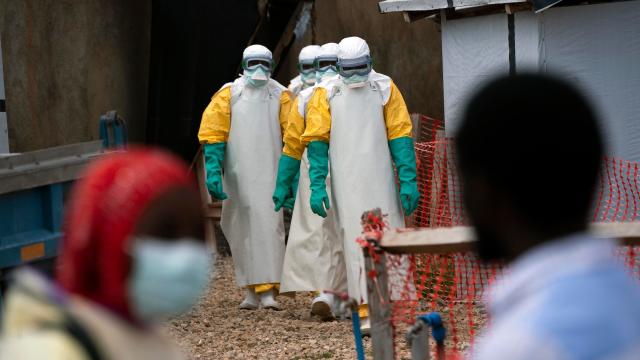A report compiled by an independent group of experts claims that governments and NGOs are woefully unprepared for the next big pandemic, while subsequently warning of a “very real threat” for a global-scale pandemic to kill 50 million to 80 million people.
“The world is at acute risk for devastating regional or global disease epidemics or pandemics that not only cause loss of life but upend economies and create social chaos,” grimly proclaims the report, published Thursday by the Global Preparedness Monitoring Board (GPMB).
The independent group, co-convened by the World Health Organisation and the World Bank, warns that the world is increasingly facing an array of dire health risks and that preparedness efforts at the state-level are sorely lacking.
The GPMB was formed in response to recommendations made by a United Nations crisis task force following the 2014-2016 Ebola epidemic in West Africa. Launched in 2018, the group monitors and evaluates global levels of preparedness for disease outbreaks and other health-related crises.
In addition to flagging potential problems and deficiencies, the GPMB provides recommendations to national and international leaders and other decision-makers. Today’s report, called “World at Risk,” is the first in what’s expected to be an annual series.
For the report, the GPMB experts evaluated emerging social, economic and political trends, as well as the latest developments in how highly infectious diseases migrate around the world, among many other factors. Citing global trends like climate change and burgeoning international insecurity, the authors of the new report warned of the potential for major disease outbreaks.
In the introduction of the report, written by GPMB co-chairs Gro Harlem Brundtland, the former Prime Minister of Norway, and Elhadj As Sy, the secretary-general of the International Federation of Red Cross and Red Crescent Societies, the authors put their concern in the bleakest of terms.
A “global health emergency looms large,” they wrote, including “a very real threat of a rapidly moving, highly lethal pandemic of a respiratory pathogen killing 50 to 80 million people and wiping out nearly 5% of the world’s economy,” wrote Brundtland and Sy. A “global pandemic on that scale would be catastrophic, creating widespread havoc, instability and insecurity,” they wrote, adding that the “world is not prepared.”
The current level of preparedness at the global scale was described in the report as being “grossly insufficient.” Community engagement, the authors wrote, is “fundamentally lacking” across “all aspects of national preparedness planning and response.” Ebola, SARS, cholera, measles, and influenza were among the many dangerous airborne diseases cited by the group.
The group also expressed its frustration at the inability of governments and their partners to develop coherent, long-term approaches to the problem.
“For too long, we have allowed a cycle of panic and neglect when it comes to pandemics: we ramp up efforts when there is a serious threat, then quickly forget about them when the threat subsides,” the authors wrote. “It is well past time to act.”
All economies are vulnerable, but the poor suffer the most, according to the report. The authors said lower-resource communities tend to lack basic health services, clean water, and sanitation — factors that exacerbate the spread of infectious diseases. Other drivers of disease cited in the new report included the surge in international conflicts, the rise of weak states, increasing migration, the climate crisis, and urbanisation.
Prediction models suggest a global pandemic would drop South Asia’s gross domestic product (GDP) by 2 per cent, equal to $78 billion, and drop Sub-Saharan Africa’s GDP by 1.7 per cent, or $41 billion, according to the report. That’s a lot of money, by any measure.
“Any country without basic primary health care, public health services, health infrastructure and effective infection control mechanisms faces the greatest losses, including death, displacement and economic devastation,” the authors wrote in the report.
The report listed several “urgent actions” to prepare the world for major health emergencies. These include a commitment by heads of government to “commit and invest” in the development of strong systems to deal with outbreaks and a plea to financial institutions to “link preparedness with financial risk planning.” “Countries, donors and multilateral institutions,” the authors wrote, “must be prepared for the worst.”
Some progress in this area has been made, including 59 countries that, as of July 2019, have developed a national action plan for health security — yet not a single one is fully financed, according to the report. Accordingly, the GPMB is calling for increased funding at the local, national, and international levels.
No doubt, this is a compelling and sobering report, but it’s an open question as to whether the world is listening, especially given the myriad concerns that seem more pressing at the moment. Sadly, the cycle of ramping up the required systems and resources when an epidemic hits, and then scaling down again when it’s over, will remain the de facto approach for the foreseeable future.
